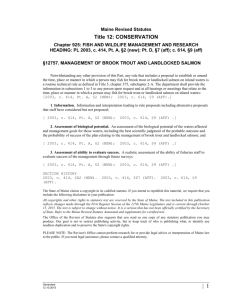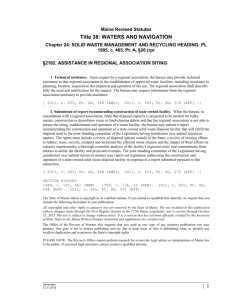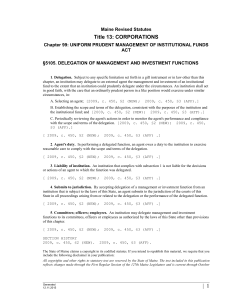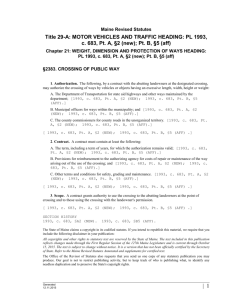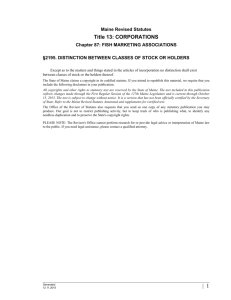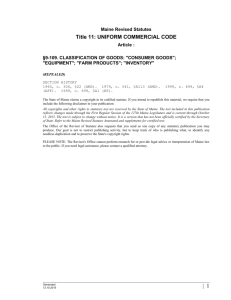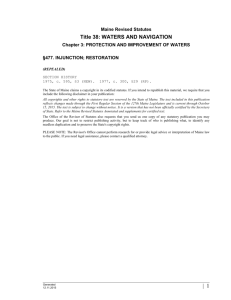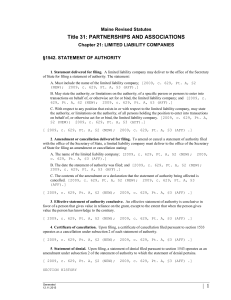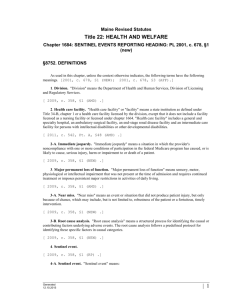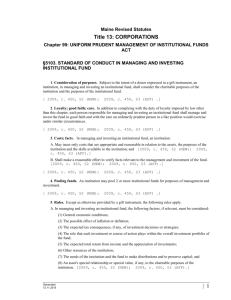1317-D MS-Word - Maine Legislature
advertisement
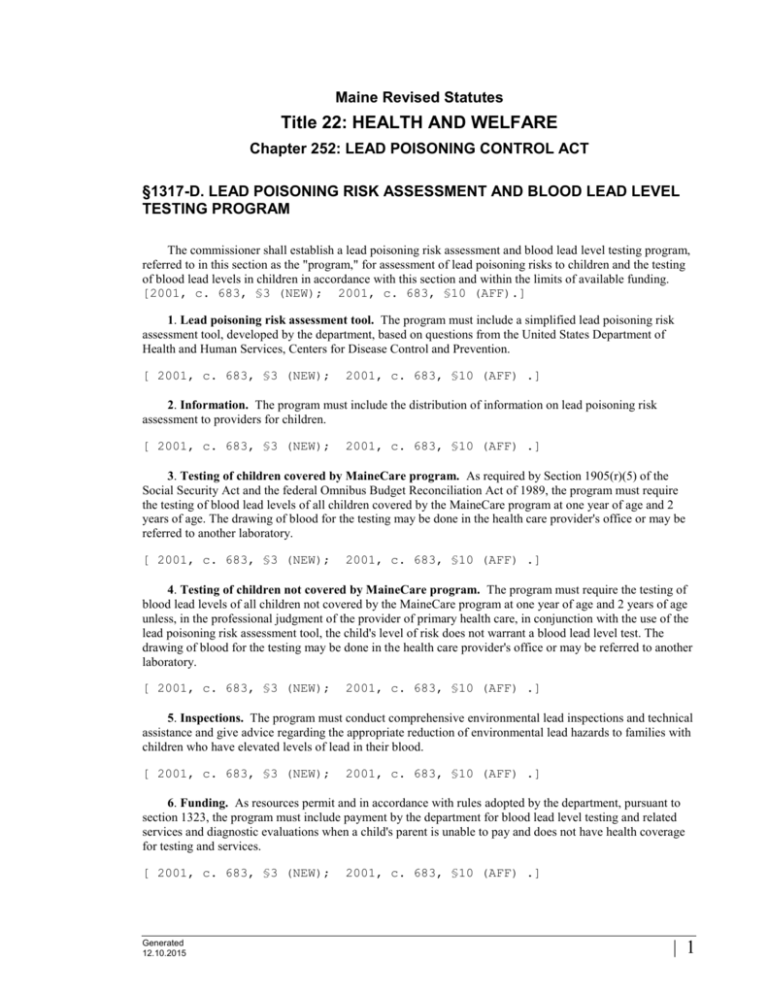
Maine Revised Statutes Title 22: HEALTH AND WELFARE Chapter 252: LEAD POISONING CONTROL ACT §1317-D. LEAD POISONING RISK ASSESSMENT AND BLOOD LEAD LEVEL TESTING PROGRAM The commissioner shall establish a lead poisoning risk assessment and blood lead level testing program, referred to in this section as the "program," for assessment of lead poisoning risks to children and the testing of blood lead levels in children in accordance with this section and within the limits of available funding. [2001, c. 683, §3 (NEW); 2001, c. 683, §10 (AFF).] 1. Lead poisoning risk assessment tool. The program must include a simplified lead poisoning risk assessment tool, developed by the department, based on questions from the United States Department of Health and Human Services, Centers for Disease Control and Prevention. [ 2001, c. 683, §3 (NEW); 2001, c. 683, §10 (AFF) .] 2. Information. The program must include the distribution of information on lead poisoning risk assessment to providers for children. [ 2001, c. 683, §3 (NEW); 2001, c. 683, §10 (AFF) .] 3. Testing of children covered by MaineCare program. As required by Section 1905(r)(5) of the Social Security Act and the federal Omnibus Budget Reconciliation Act of 1989, the program must require the testing of blood lead levels of all children covered by the MaineCare program at one year of age and 2 years of age. The drawing of blood for the testing may be done in the health care provider's office or may be referred to another laboratory. [ 2001, c. 683, §3 (NEW); 2001, c. 683, §10 (AFF) .] 4. Testing of children not covered by MaineCare program. The program must require the testing of blood lead levels of all children not covered by the MaineCare program at one year of age and 2 years of age unless, in the professional judgment of the provider of primary health care, in conjunction with the use of the lead poisoning risk assessment tool, the child's level of risk does not warrant a blood lead level test. The drawing of blood for the testing may be done in the health care provider's office or may be referred to another laboratory. [ 2001, c. 683, §3 (NEW); 2001, c. 683, §10 (AFF) .] 5. Inspections. The program must conduct comprehensive environmental lead inspections and technical assistance and give advice regarding the appropriate reduction of environmental lead hazards to families with children who have elevated levels of lead in their blood. [ 2001, c. 683, §3 (NEW); 2001, c. 683, §10 (AFF) .] 6. Funding. As resources permit and in accordance with rules adopted by the department, pursuant to section 1323, the program must include payment by the department for blood lead level testing and related services and diagnostic evaluations when a child's parent is unable to pay and does not have health coverage for testing and services. [ 2001, c. 683, §3 (NEW); Generated 12.10.2015 2001, c. 683, §10 (AFF) .] | 1 MRS Title 22 §1317-D. LEAD POISONING RISK ASSESSMENT AND BLOOD LEAD LEVEL TESTING PROGRAM 7. Exception. This section does not apply to a child whose parent or guardian objects to that child's participation in the program on the grounds that the assessment or testing is contrary to the parent's or guardian's sincerely held religious or philosophical beliefs. [ 2001, c. 683, §3 (NEW); SECTION HISTORY 2001, c. 683, §3 (NEW). 2001, c. 683, §10 (AFF) .] 2001, c. 683, §10 (AFF). The State of Maine claims a copyright in its codified statutes. If you intend to republish this material, we require that you include the following disclaimer in your publication: All copyrights and other rights to statutory text are reserved by the State of Maine. The text included in this publication reflects changes made through the First Regular Session of the 127th Maine Legislature and is current through October 15, 2015. The text is subject to change without notice. It is a version that has not been officially certified by the Secretary of State. Refer to the Maine Revised Statutes Annotated and supplements for certified text. The Office of the Revisor of Statutes also requests that you send us one copy of any statutory publication you may produce. Our goal is not to restrict publishing activity, but to keep track of who is publishing what, to identify any needless duplication and to preserve the State's copyright rights. PLEASE NOTE: The Revisor's Office cannot perform research for or provide legal advice or interpretation of Maine law to the public. If you need legal assistance, please contact a qualified attorney. | 2 Generated 12.10.2015
